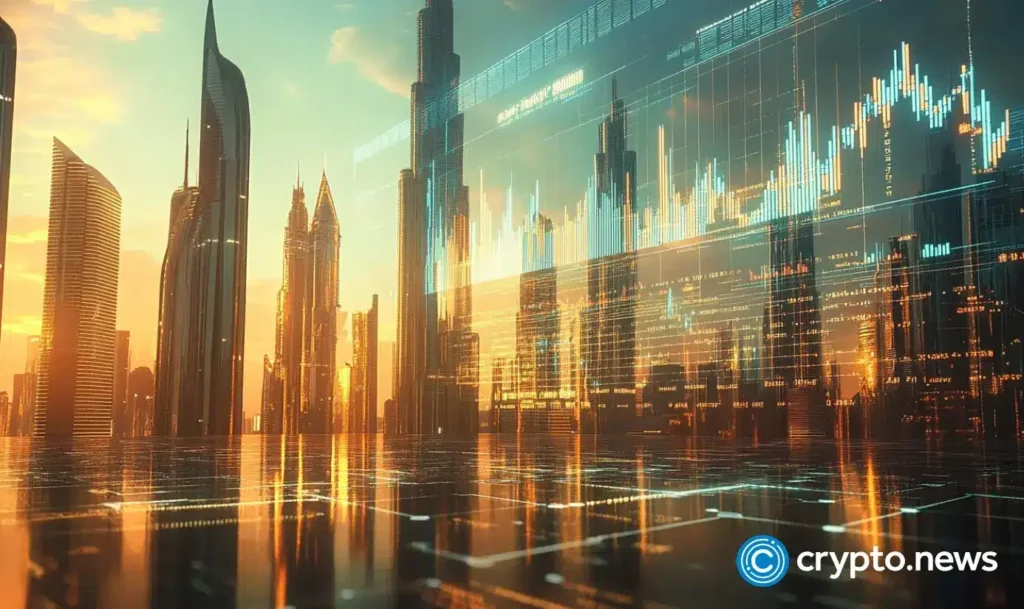Disclosure: The views and opinions expressed here belong solely to the author and do not represent the views and opinions of the crypto.news editorial team.
Thanks to a tech-savvy population, progressive regulatory frameworks, and ambitious government initiatives, significant strides are being made in the Middle East when it comes to blockchain and cryptocurrency innovation. This year, I had the pleasure of attending the Satoshi Roundtable and Token 2049 Summit in Dubai, two flagship gatherings on the global Web3 events circuit. In addition to showcasing the latest advancements and breakthroughs in the Web3 landscape, these events served to celebrate the region’s rapid rise as a thriving hub of Web3 activity, and the energy in the air was palpable.
In recent years, the MENA region has gained an excellent reputation for hosting high-quality events, attracting the best and brightest in Web3. Since launching Lemniscap seven years ago, we have actively identified and supported pre-trend stories and emerging Web3 solutions, both from an infrastructure and consumer layer perspective.
The MENA region has presented exceptional investment opportunities in emerging verticals, and as blockchain technology continues to evolve, the Middle East’s appetite for Web3 growth will undoubtedly create fertile ground for the most innovative and disruptive projects to thrive.
Phygital: The Intersection Between Blockchain and Physical Assets
In my opinion, one of the most exciting investments in the Middle East is “phygital,” which represents the confluence of blockchain technology and physical assets. This convergence has the potential to revolutionize sectors such as real estate, art, and luxury goods, three sectors that are already booming in the MENA region. Blockchain’s immutable ledger and smart contract functionality provide a powerful framework for creating transparent and secure systems for managing and trading physical assets. For example, the tokenization of real estate on blockchain platforms enables fractional ownership, making it easier for investors to buy and sell shares of high-value properties.
In a region where real estate investment is a major driver of wealth, particularly in countries like the UAE and Saudi Arabia, this opens up a world of opportunity for smaller investors who may not have had access to assets of this value before. We have seen how the UAE real estate sector is benefiting from the deployment of blockchain technology, with properties being bought and sold using Bitcoin (BTC), providing a more seamless and transparent way for international investors to invest in the MENA real estate markets. Additionally, by tokenizing artwork and collectibles, owners can obtain proof of authenticity, trace provenance, and even trade portions of high-value pieces, which not only democratizes access to valuable assets but also reduces fraud, a major concern in these markets.
While the Phygital space has considerable advantages, the infrastructure to enable seamless integration between digital and physical assets is still evolving. It is difficult to establish secure and verifiable connections between blockchain-based digital tokens and their corresponding physical assets, requiring reliable tracking systems, such as IoT devices or RFID technology. Ambiguity around legal frameworks and regulatory standards for tokenized physical assets may also limit growth in the short term, but once these issues are resolved, the growth trajectory for Phygital will be expanded.
Web3 Games
Governments in the MENA region are actively encouraging innovation in the gaming sector, recognizing the opportunity to be the first to welcome Web3 gaming platforms, which are gaining popularity. These platforms allow players to become real owners of in-game assets using NFTs and play-to-earn models.
Dubai, in particular, has emerged as a leading hub for Web3 gaming development, driven by the recent launch of the Dubai Program for Gaming 2033, which is mandated to create 30,000 new jobs in this booming sector. Gaming is one of the verticals with the highest potential for consumer adoption of cryptocurrencies, but it is one of the most challenging to master. Complex blockchain integrations, including slow transaction times, high gas fees, and difficult onboarding processes for non-crypto users, still hamper the overall Web3 gaming experience. These obstacles make it difficult for mainstream players to engage with Web3 games, limiting adoption altogether.
For example, Ethereum’s high transaction fees often discourage in-game purchases or NFT trading, while complex wallet setups discourage casual users. However, with advancements such as Layer 2 scaling solutions and gasless transaction models, these issues can be addressed. Simplified onboarding through user-friendly wallets and seamless integration with blockchain infrastructure can significantly improve the user experience. Once these hurdles are overcome, Web3 gaming can attract millions of players, opening up huge opportunities for growth and player-owned savings. Going forward, we are excited to seek out exemplary investment opportunities that expand the blockchain gaming space.
DePIN
Decentralized physical infrastructure networks represent another promising frontier for VCs exploring the web3 space across the Middle East, renowned for its vast energy resources, offering unique opportunities for DePIN deployments, using blockchain technology to enable decentralized networks that support physical infrastructure.
With many Middle Eastern countries, such as Saudi Arabia and the United Arab Emirates, investing heavily in renewable energy to diversify away from oil, venture capitalists have a timely opportunity to back projects that could redefine how energy is managed and distributed in the region. Last year, an arm of Abu Dhabi’s Advanced Technology Research Council launched a new blockchain-based carbon tracking and trading platform, allowing companies to offset their carbon footprint more efficiently and transparently. So there is clear support at the highest levels for blockchain-centric sustainability measures to be put in place.
While DePIN holds great promise, the success of DePIN projects in MENA will depend on the region’s ability to build and maintain robust physical networks that can support decentralized applications, which requires significant investments in physical assets and technology. The cost of developing infrastructure will be high and projects could take years to fully mature, but the roadmap for success is there.
From a venture capitalist perspective, the Middle East offers a highly attractive opportunity pool for targeted blockchain investments. Replicating initiatives such as the UAE’s Digital Government Strategy 2025 across the MENA region will go a long way in promoting digital and blockchain integration across key government departments, which in turn will have a ripple effect on the rest of the tech and investor ecosystem.





